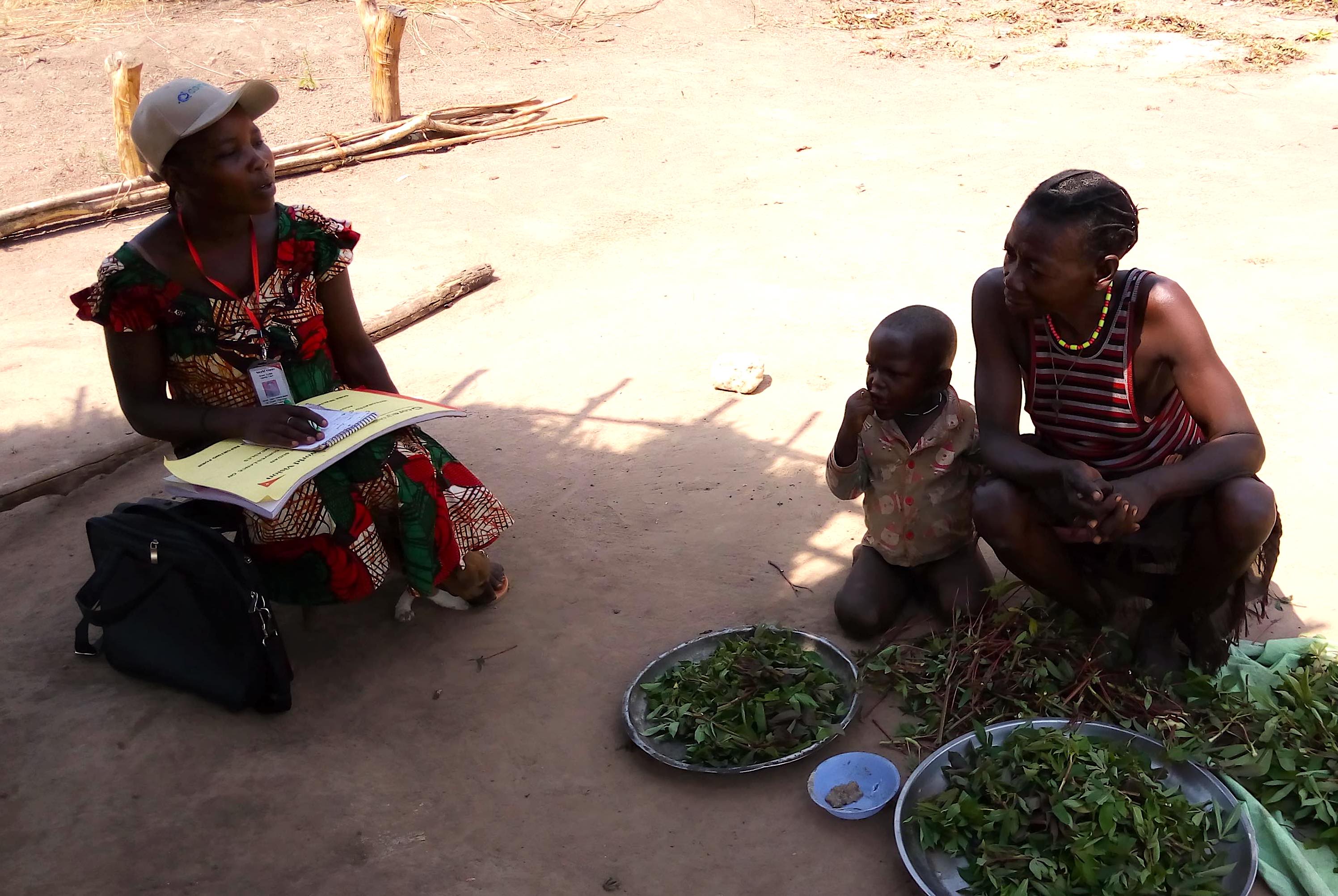World Vision and USAID reach over 59,000 people through intensified COVID-19 awareness campaign

“At my age, if I get infected of COVID-19, I can die. Being aware of the pandemic is helping my family so much. So, we frequently wash our hands with soap, avoid social gatherings, handshakes and hugging”, says 62-year old Joseph Alminio.
He adds, “I share the message to people in my community. Some ignore me but I tell them anyway. I am my brother’s keeper.”
To ensure that the communities are reached with life-saving COVID-19 preventive messages, World Vision’s field teams went house-to-house observing the measures from the Ministry of Health. A total of 9,049 households were visited with around 59,891 people for a period of two months in South Sudan’s Western Equatoria State.

To increase access to areas without functional health facilities, detect and report suspected cases promptly, World Vision oriented 10 project supervisors, 129 Boma health promoters and 1,290 community key informants from the communities. Joseph is one of the trained informants.
“The people’s involvement in the disease outbreak and response such as COVID-19 is vital to detect symptoms, prevent the spread and initiate control measures. The role of the volunteers is very essential, particularly in areas with no health facilities to ensure that diseases are reported early to the health authorities for a quick response”, says Anthony Lomoro, World Vision’s CORE Polio Project Manager.
At my age, if I get infected of COVID-19, I can die. Being aware of the pandemic is helping my family so much. So, we frequently wash our hands with soap, avoid social gatherings, handshakes and hugging.
Lomoro adds, “Over 60 to 70 percent of the population have no access to health services, the conflict that started in 2013 has destroyed many health facilities and displaced hundreds of health workers. This has created a vacuum in the health system especially in immunization and surveillance.”
He emphasized that since the polio volunteers are from the communities, are respected and trusted, it is easy for the people to listen to them especially in convincing them to change behaviors and practice the preventive measures that will keep the entire community safe.

With funding from the US Agency for International Development (USAID), the CORE Group Polio Project supports integrated community-based surveillance focusing on polio, measles and Ebola virus disease in high-risk border counties along the Democratic Republic of Congo, Central African Republic and Uganda.
After the first case of COVID-19 in South Sudan was reported, the project quickly shifted and leveraged its existing community-based polio network and surveillance system to integrate COVID-19 response in nine remote communities of Western Equatoria State.
In many African countries, a handshake is a symbol of love and respect but with COVID-19, it is a convenient way of transmitting the virus from one person to another. In South Sudan, a handshake is important and refusing it is offensive.

Alice Gordon, 45, a mother from Gangura Payam shares, “To avoid the virus, we have to follow a new way of life and information properly. Unfortunately, many in my community still cling to unhealthy cultural beliefs that need to be changed.”
She adds, “After the awareness conducted by World Vision, people are slowly adapting to the guidelines which are a good sign. As a community member, I started the effort to share what I have learned.”
Many women like Anibie Susan, 35 years old and mother of five, depend on daily-paid jobs for income. Now this is no longer possible due to COVID-19. “The little money I earn is to feed my children. I follow the preventive measures by keeping them home and washing their hands. I tell my fellow women to do.”

Story by By Scovia Faida Charles Duku, Communications Officer and Anthony Kisanga Lomoro, CORE Polio Project Manager I Photos by CORE Polio Project Team